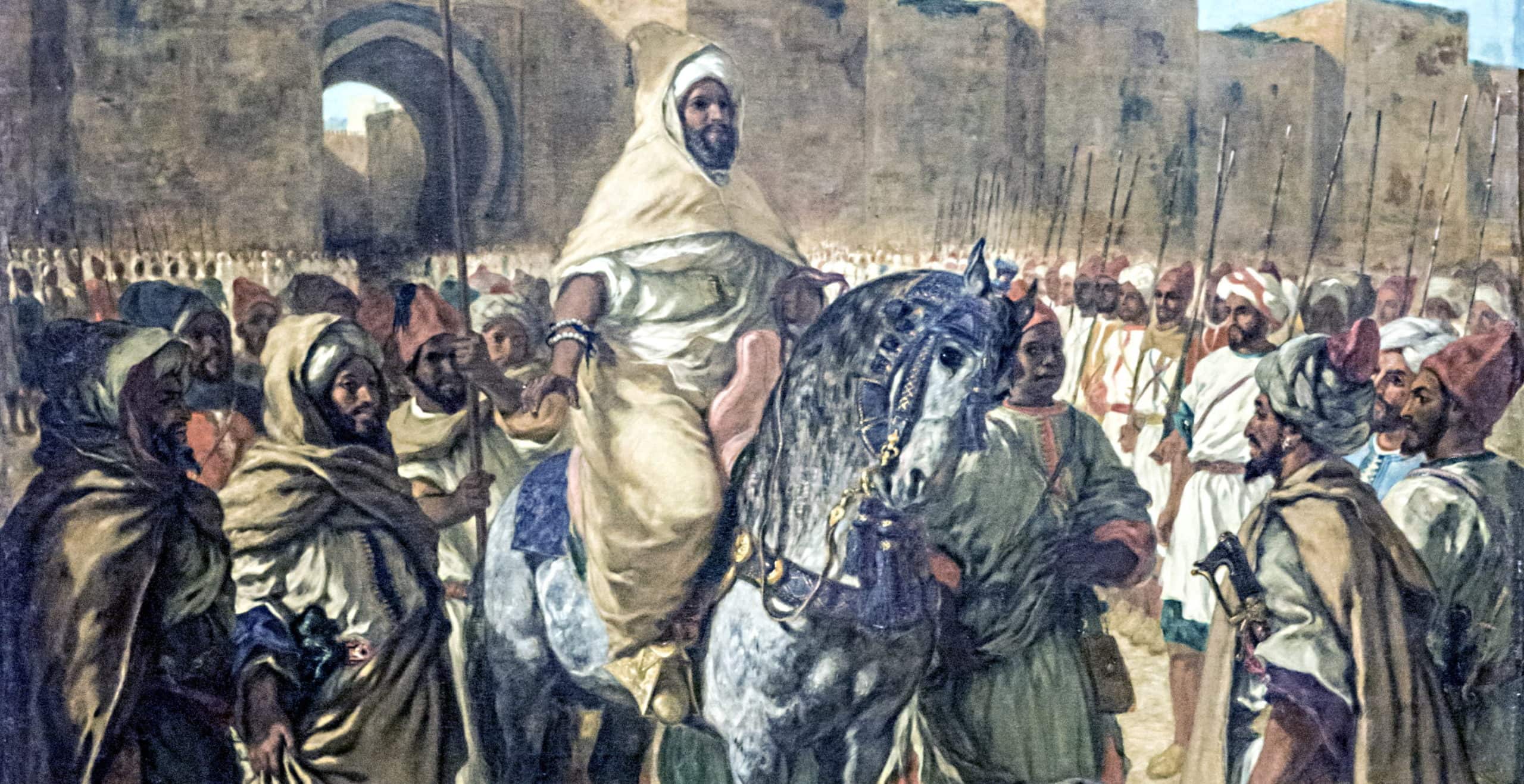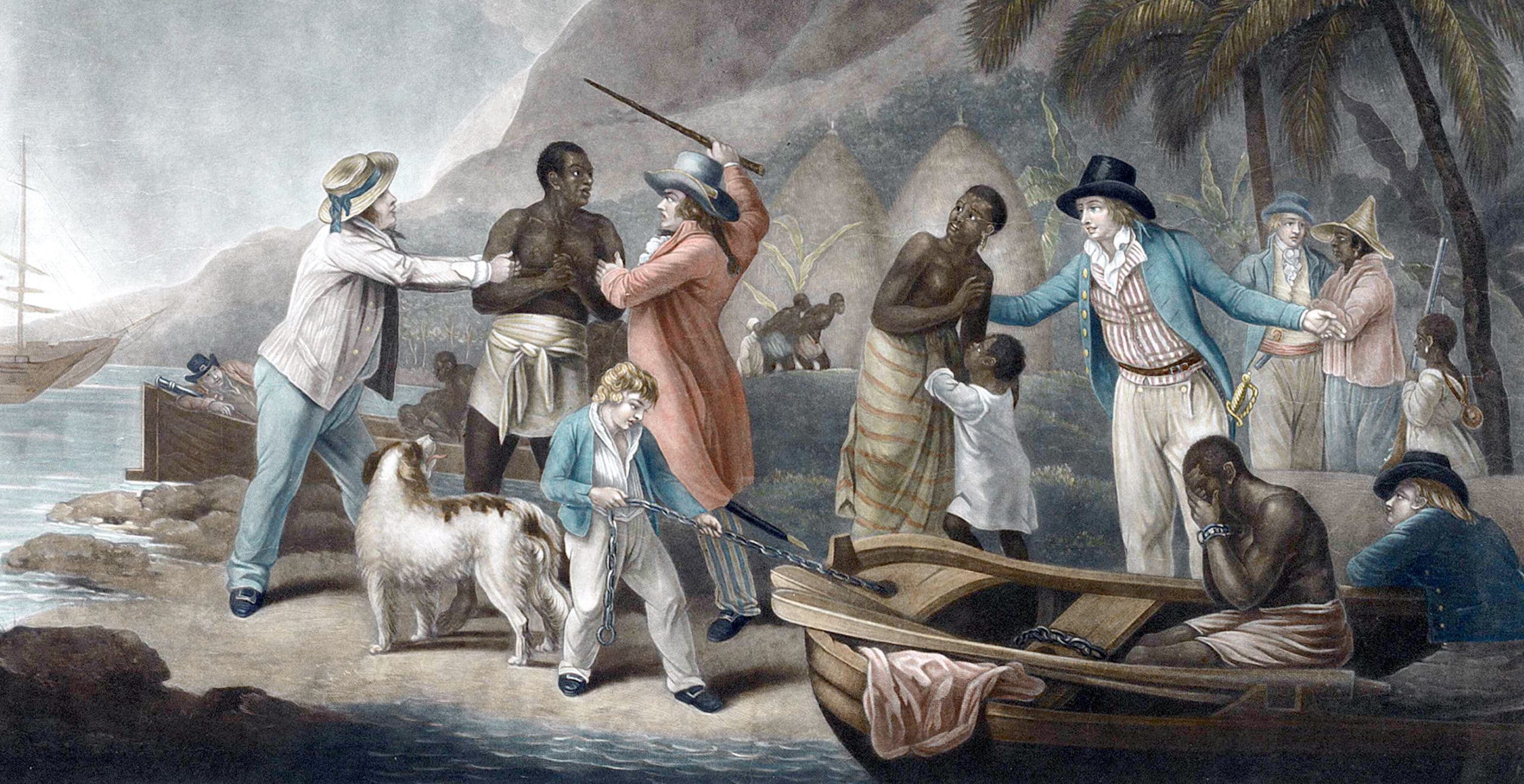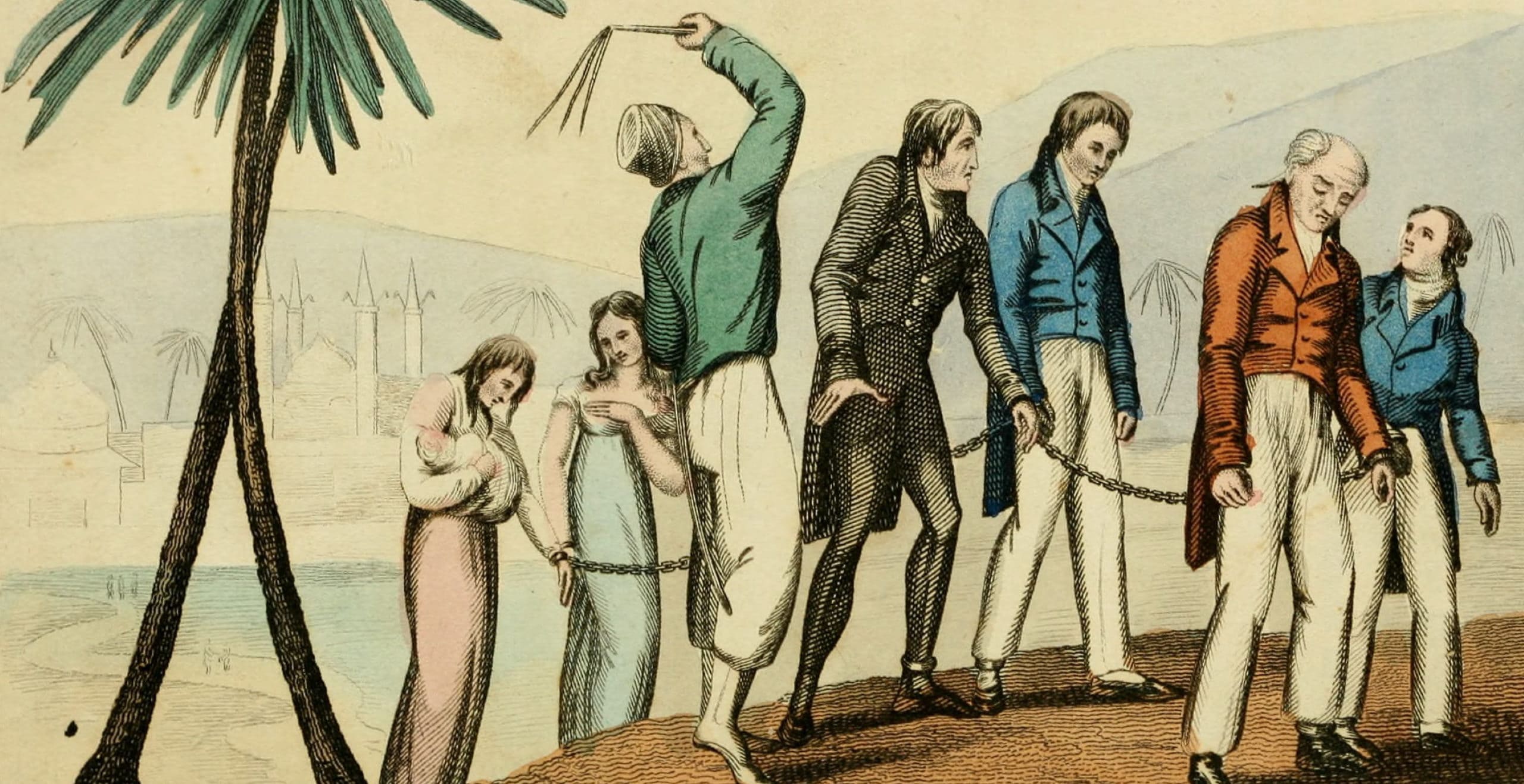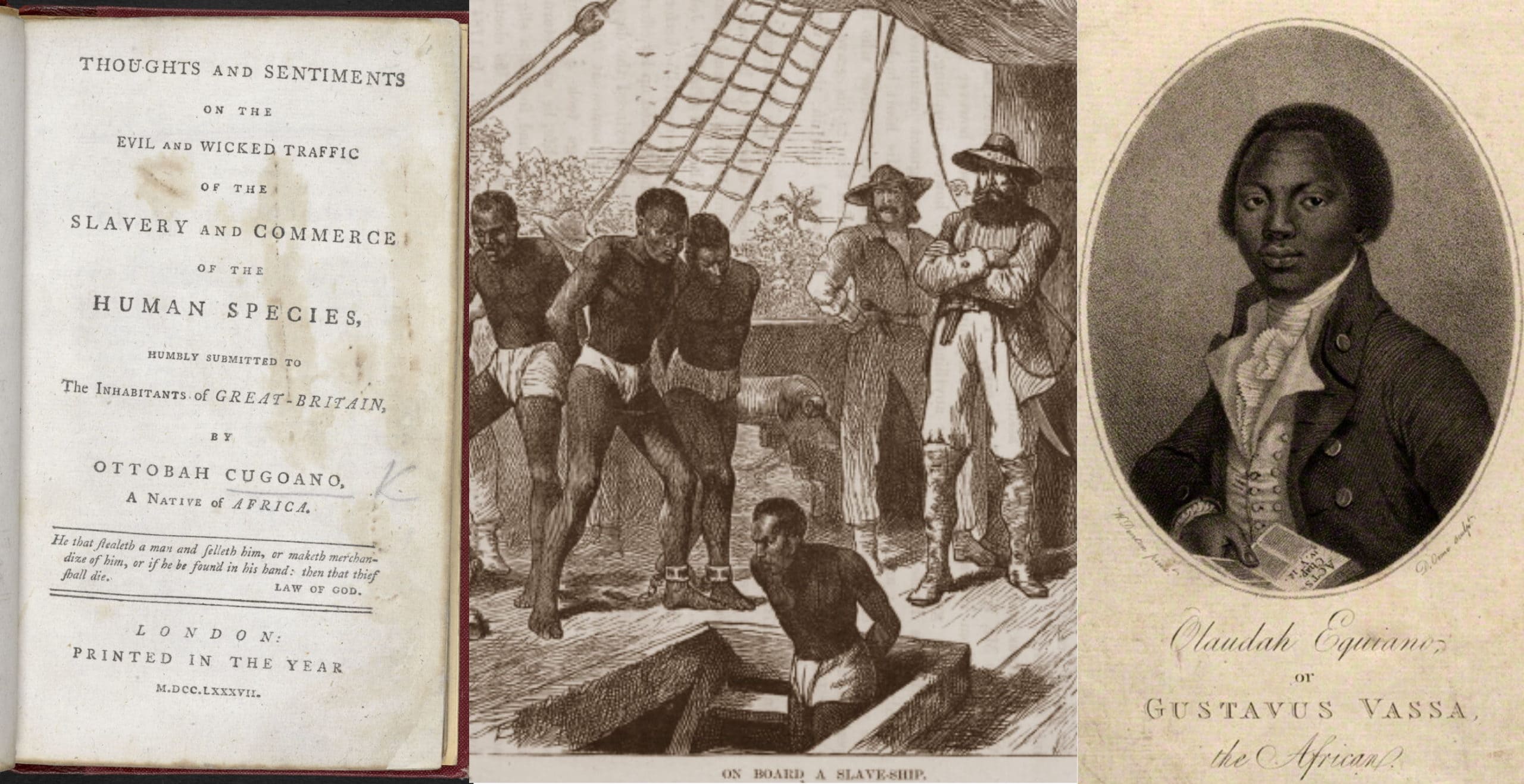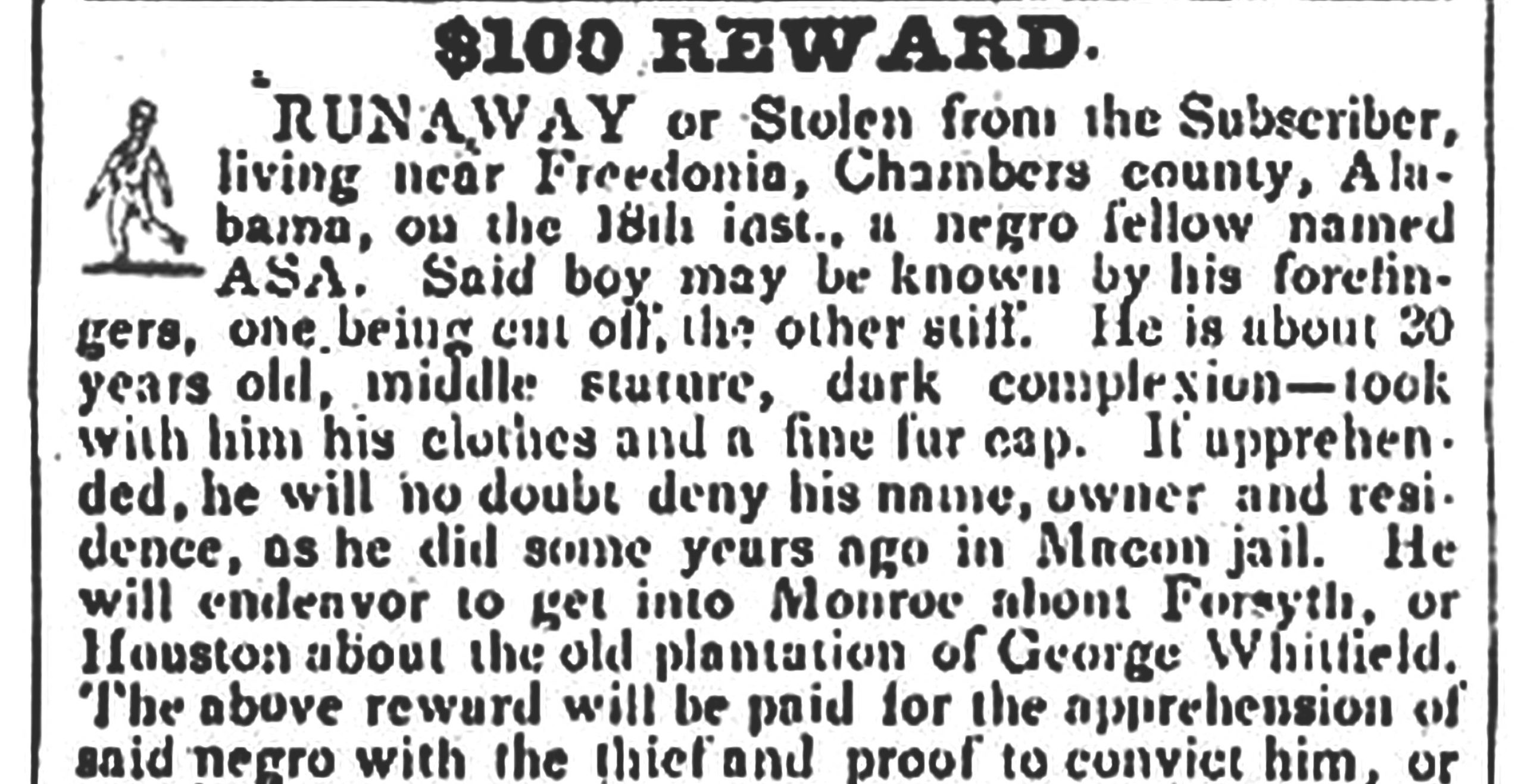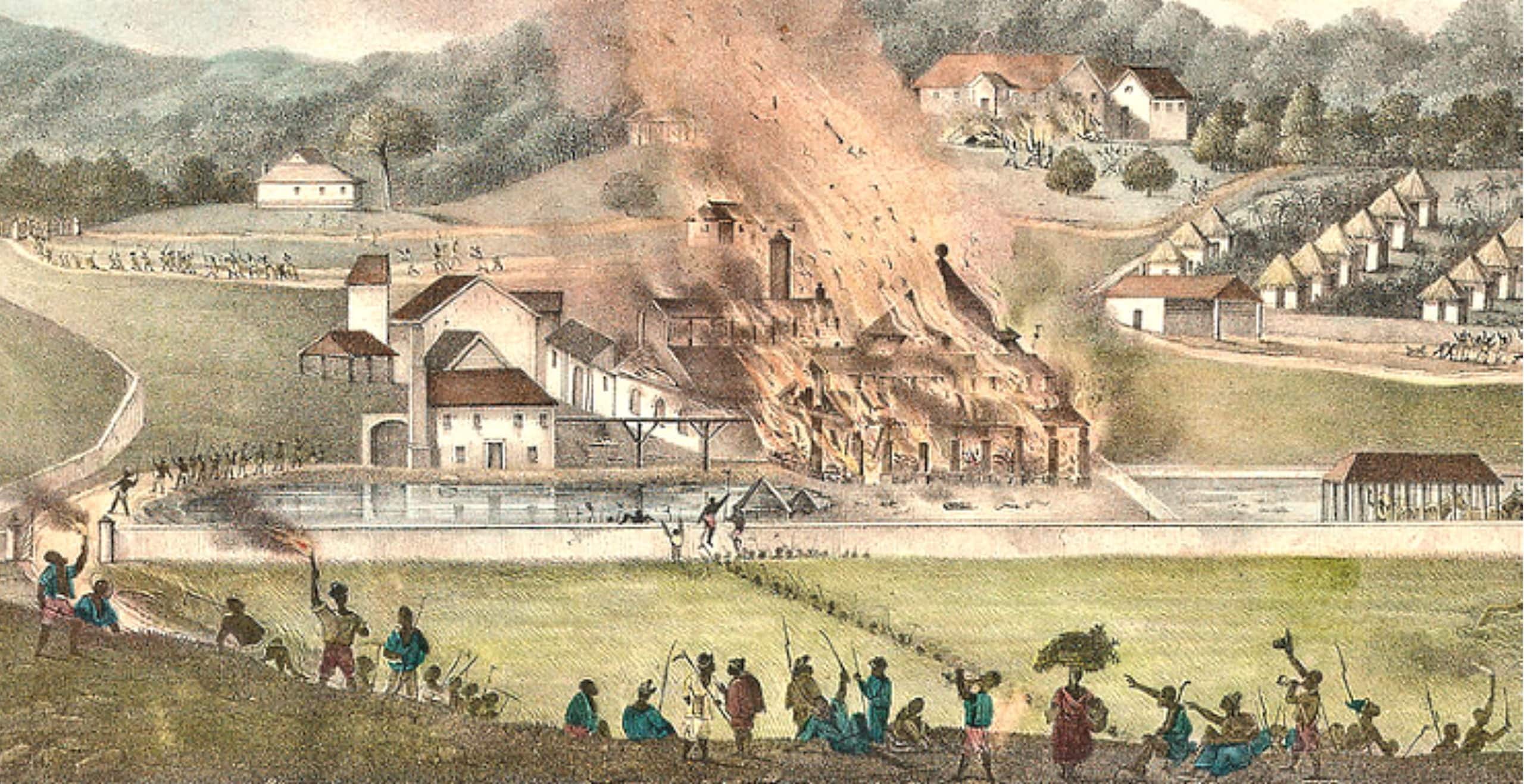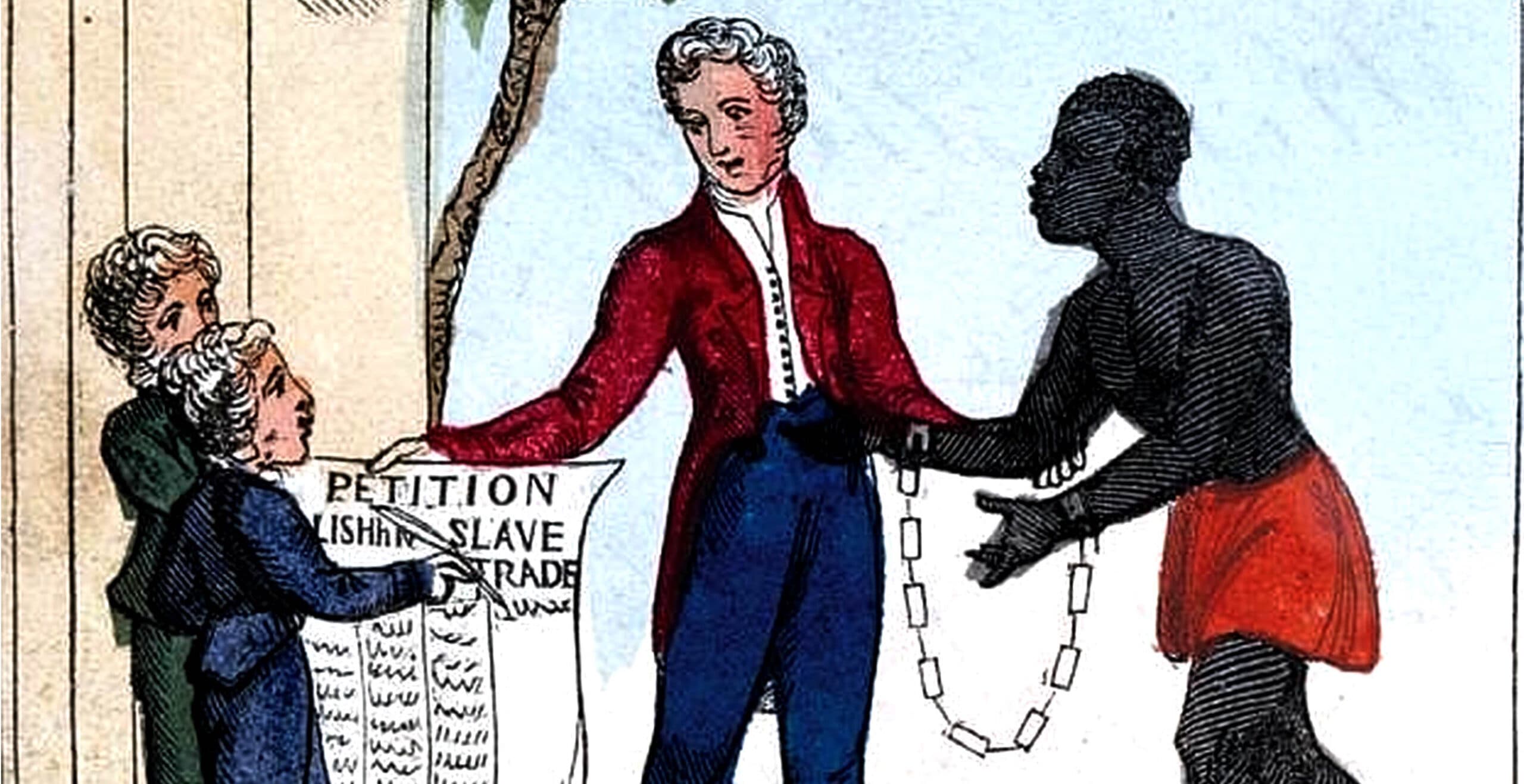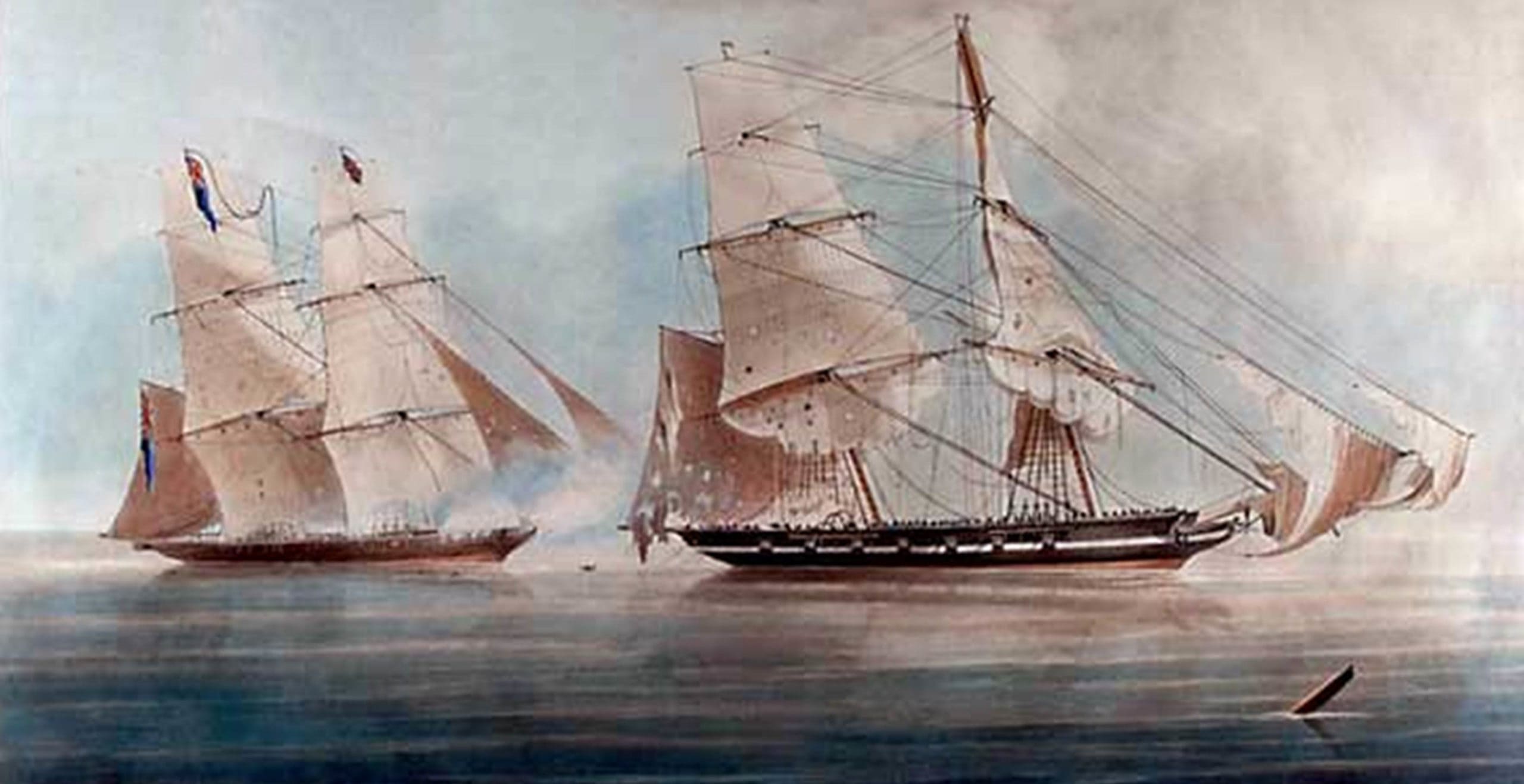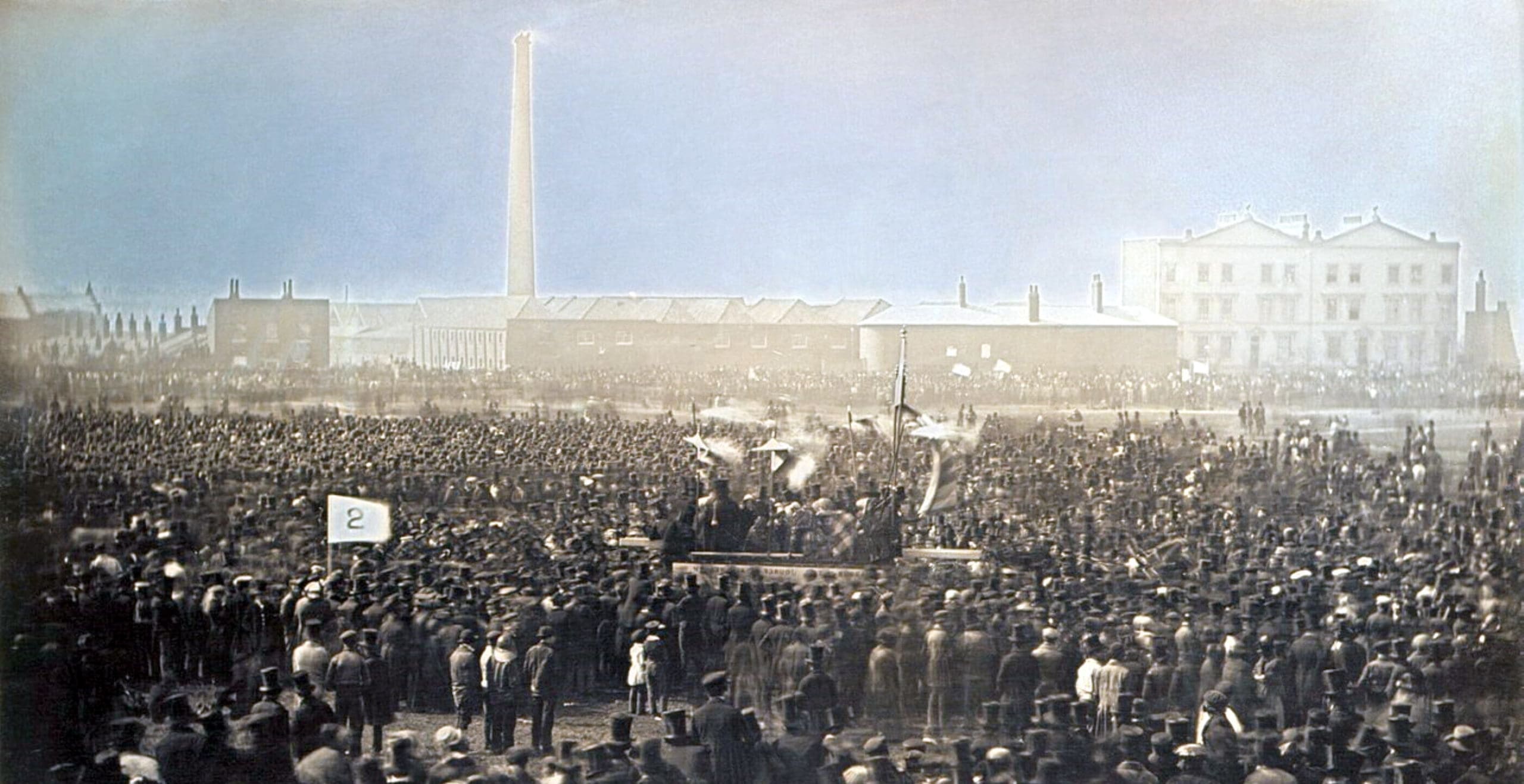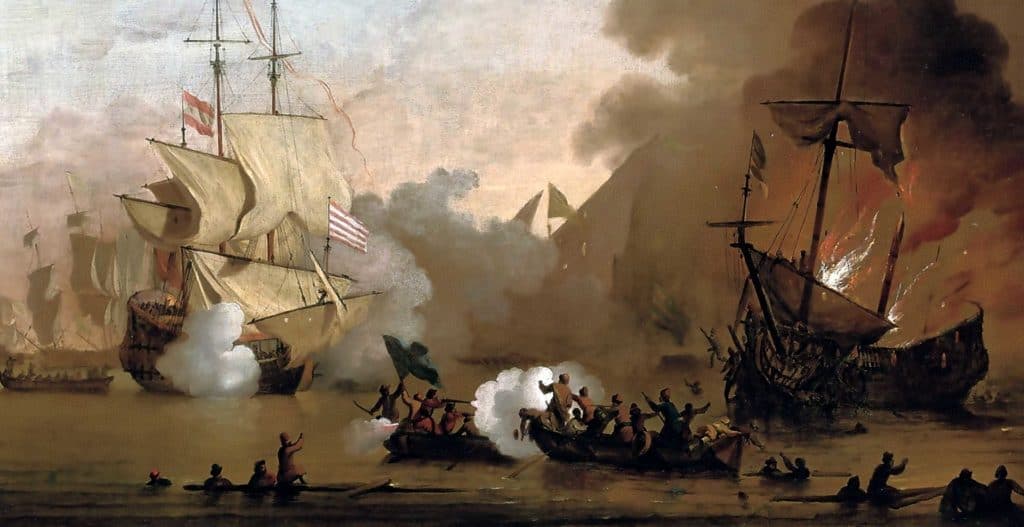Twenty-three years in captivity transformed a young boy from Cornwall into an elite fighter in the Moroccan army. His name was Thomas Pellow, a man who would escape from his enslavement and return home to tell his story.
Born in 1704, Pellow’s life began in Penryn, Cornwall, the son of Thomas Pellow and his wife Elizabeth. His childhood was typical of the time, however sadly his life was about to be turned upside down on one fateful day in the summer of 1715.
Now eleven, Thomas accompanied his uncle John, the captain of a ship with a crew of five, who was embarking on a voyage taking a cargo of pilchards to Genoa.
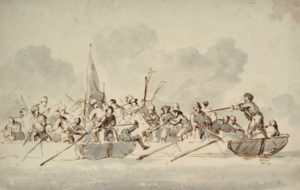
Whilst the trip had not lived up to young Thomas’s expectations, things were about to take a turn for the worse on the return journey home.
With the vessel making its way across the Bay of Biscay, Uncle John and his men suddenly found themselves ambushed just off Cape Finisterre, a peninsula on the coast of Galicia. It was here that two ships containing Barbary pirates attacked their ship and took the crew prisoners, including eleven-year-old Thomas.
Now in possession of their Cornish captives, the Moorish pirates returned to the port town of Salé where they delivered their new slaves to the Sultan of Morocco.
After an eventful journey they finally made it to dry land, where Thomas and a group of prisoners were taken to the town of Rabat, where he was separated from his uncle.
Thomas was now all alone, held prisoner by unknown assailants in a strange land speaking a foreign tongue.
His fate was decided when he was presented to the Sultan and handpicked, along with three others.
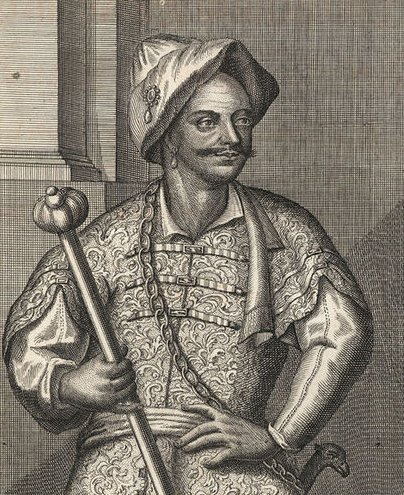
As soon as he arrived Thomas bore witness to horrific levels of violence, events which would ensure his compliance.
In his first position as a slave he was sent to the armoury on cleaning duties, however he did not stay long as he was intended for the Sultan’s son, Muley Spha.
The son proved to be a formidable character, well-known for his poor treatment of his slaves and his unsavoury use of punishments and torture. Thomas was in for a rough ride.
Upon noticing that despite Thomas’s age he was very intelligent, Spha decided to employ different tactics in order to use the boy.
Rather than directly using violence to get him to obey, he attempted to convert him to Islam, using bribes and the promise of a better life.
Thomas initially remained steadfast in his refusal, however the wrath he encountered from Spha simply resulted in weeks of torture including being kept in chains all day and only taken out for bastinado which involved being suspended upside down and whipped furiously on the soles of the feet.
Not unsurprisingly, under such harsh physical conditions, Thomas relented and converted to Islam, although he would later comment about the superficiality of his conversion, noting that under such duress he had no other choice.
Sadly, it also meant that when Thomas’s family heard the news that he was still alive but he had converted to Islam, the English government refused to list him as a slave that could be bought out of captivity and thus his fate was sealed.
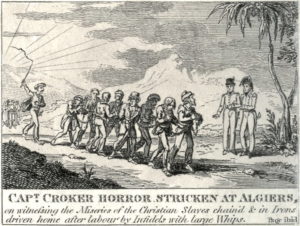
Back in Morocco, the Sultan gave instructions for Thomas to attend school and learn Arabic, however Moulay Spha disobeyed his orders. As a result, the Sultan had him killed in front of Pellow.
Meanwhile, the Sultan recognised Thomas’s intelligence and found him duties within the palace which meant better living conditions.
He was soon entrusted to be in charge of other slave boys and was promoted to work for Ismail’s other son.
Now fluent in Arabic, it was equally important for Thomas to learn the local customs and expectations of his master. Under these conditions, he would find his strength of character constantly challenged and tested. One such example occurred when he was put on guard in the royal household just outside the royal harem.
He was only fifteen at the time, however he handled the challenge admirably when Sultan Ismail banged on the door to be let in, despite the rules maintaining strict adherence of advance notice to visit. Not wanting to disregard the rules but realising that it was the Sultan behind the door, Pellow gave a warning shot and stated that he must be an imposter because the real Sultan was too honourable as to not follow the palace rules.
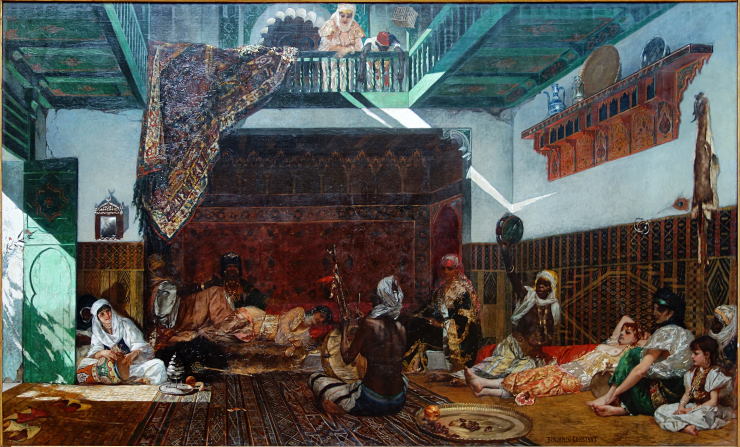
Fearing his punishment the following morning, Pellow was surprised to find out that the Sultan despite his anger, had admired Thomas’s resolve to follow the rules as it proved ultimately his loyalty and sense of duty. This observation would hold him in good stead as he rose through the ranks.
Now that he was older, the Sultan also saw fit to arrange a marriage for him, something which would prove fruitful for Ismail in a variety of ways. By allowing marriages for slaves, he ensured that any future children would become slaves as well. Moreover, any slave partnerships would also hinder possible escape attempts as one would have to leave the other behind, thus entrenching each individual firmly into the extensive network of enslavement.
Thomas was no exception: he too was given a wife and ended up having a daughter with her, however neither of them survived as they died from disease whilst he was carrying out his military duties.
Pellow would find himself assigned into the Abid al-Bukhari (otherwise known as the Black Guards). This was a corps of African slave soldiers assembled by the Sultan as an elite fighting force.
That being said, their servile status was enforced as they were not allowed to handle the same kind of weaponry such as a sword or spear.
It did not take long for Pellow to rise through the ranks of the military system and play a pivotal role in the armed forces. For serving soldiers of European descent like himself, it would provide an opportunity to acquire roles with more privileges and opportunities.
In this role he made it to the rank of Captain and served on the front line at a crucial time in Morocco’s history, as the threat of the conquering Ottoman army loomed ominously over the Sultan.
In this context, Pellow’s high ranking army status resulted in him serving in three military campaigns and taking command of other slave-soldiers as he led them into battle.
This did not however deter him from making his own escape attempts as he made two failed attempts, hoping to disguise himself as a merchant.
His task would prove incredibly difficult as informants were scattered around the kingdom and the palace itself was a long walk away from the coast.
Attempting to take advantage of the unstable times in Morocco he made another attempt which failed.
Meanwhile, his army career took him out to the Sahara on a slave-gathering exercise.
Finally in 1737, the opportunity presented itself to make one final attempt to escape, now twenty-three years into his servitude. After disguising himself as a travelling doctor he managed to evade the network of informers looking for runaways and made it the coast where he boarded an Irish ship.
By this point he had not yet entirely secured his freedom as the first ship he boarded took him only as far as Gibraltar, where some confusion over his identity led him to be forbidden to alight from the ship. With the crew believing he was a Moor, now tanned, with a beard and in native dress, it would take some convincing before he was allowed to leave.
Another person he encountered would threaten to reveal that he was a runaway slave and have him returned to his captors in Morocco. In response, now desperately close to achieving his goal of freedom, Pellow beat up the man before boarding another ship bound for London.
And so in the summer of 1738, a thirty-three year old man, who had last seen England at the age of eleven, returned home.
After initially arriving in London, he journeyed on to Cornwall and in October was finally reunited with his parents and greeted with a hero’s welcome. His unbelievable story had been picked up by the newspapers and many in the local community were in awe of his return as stories such as his did not usually have a happy ending.
Thomas Pellow could finally, after twenty-three years breathe a sigh of relief; his ordeal was over, his freedom secure and the threat to his life no more.
A couple of years later he would pen his memoirs in a best-selling novel entitled, “The History of the Long Captivity and Adventures of Thomas Pellow” which provided an enthralling and compelling account of slavery, Islamic culture and the kingdom of Morocco.
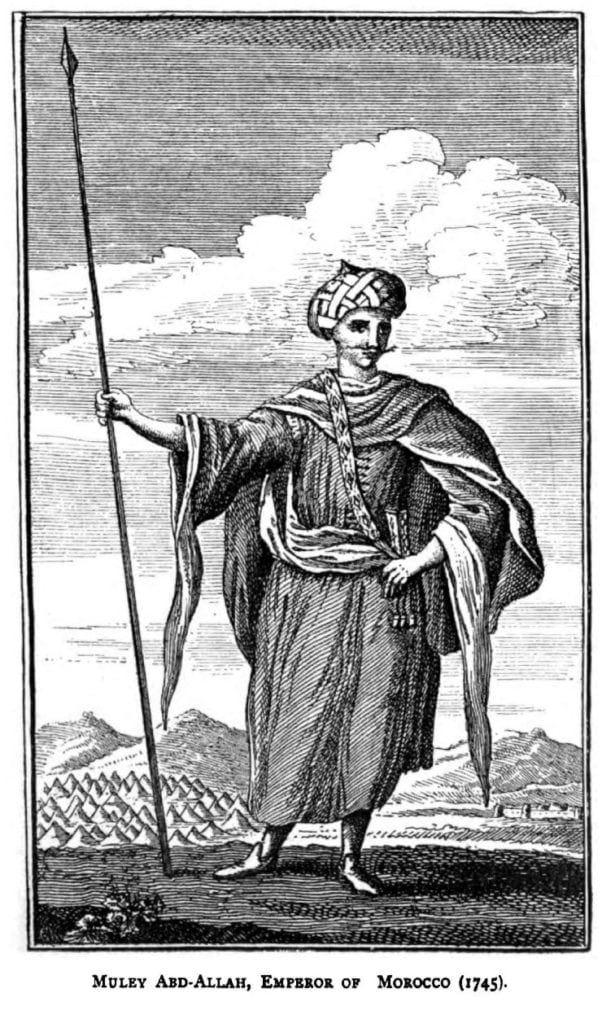
Sadly however, Pellow’s assimilation back at home proved more difficult than he expected.
It quickly became clear that his formative years being spent in Morocco had permanently shaped his character.
Despite yearning for the English shores whilst he was captive, when he returned to England everything had changed and so had he. Now he was no longer physically bound in chains, his heart and mind still were; England was no longer home.
Jessica Brain is a freelance writer specialising in history. Based in Kent and a lover of all things historical.
Published: 12th May 2022.
